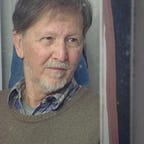The Court that sits on top of the world, and crushes everything beneath it
Now that the Supreme Court has ruled that it’s unconstitutional for Congress to restrict fossil fuel production to delay inevitable global death and destruction from unrestricted fossil fuel emissions, which of these new headline rulings are unlikely?
Supreme Court overturns Thirteenth Amendment, citing the Constitution’s notorious “three-fifths rule” that clearly recognizes the legitimacy of slavery.
Supreme Court rules that only whites (meaning white men) are allowed to vote, arguing that when the Constitution was adopted only whites, and only males of a certain social rank were entitled to vote, and that the Constitution clearly intended to protect “white life.”
Supreme Court bans immigration, noting that only American (male) citizens are permitted to serve as President, and arguing that non-natives might suborn others to lie for them on the promise of a future Presidential pardon for any crimes that they might commit in the pursuit of wealth or other notions of happiness.
The Supreme Court bans all schooling for women above the third grade, arguing that the Constitution clear intended for them to concentrate on making babies and that some uneducated women achieve puberty early.
The Supreme Court bans all public funding for public transportation, citing the Constitutional recognition of the right to bear arms. The court argued that the right to bear arms clearly implied that all other persons in public spaces should be available for target practice.
The Supreme Court bans masturbation, arguing that the right to life begins at erection.
The Supreme Court bans all public gatherings for the purpose of political expression within three miles of The Supreme Court Building, whenever the court is in session, arguing that the right to hang public officials is restricted to gangs of white nationalists angered by the clear defeat of their candidates for national office.
The Supreme Court bans all attempts to indict members of the court for lying to Congress while under oath, arguing that the Constitutional separation of powers protects members of the court from prosecution for criminal acts committed for the goal of hoodwinking members of a separate branch of government responsible for legitimizing their appointment to office, however ill chosen for a place on the court their subsequent actions might show them to be.
The Supreme Court bans all criticism of the Supreme Court, arguing that the Constitution provided that only members of the court are entitled to lifetime appointment to office and entirely removed from oversight by the voters or other actions of American citizens. And that public criticism of the court or any of its decisions might lead to throngs of angry citizens seeking to force their way into the courtroom for the purpose of hanging particular justices for particularly egregious actions such as lying to Congress while under oath. The court’s majority noted that while Presidents and members of Congress come and go, members of the court are privileged to sit in judgment of crucial national issues practically forever.
The Supreme Court bans all thinking about or public commentary on its recent decisions on the grounds that all such thought or commentary would tend to drive even ordinary American citizens bat-shit crazy.
